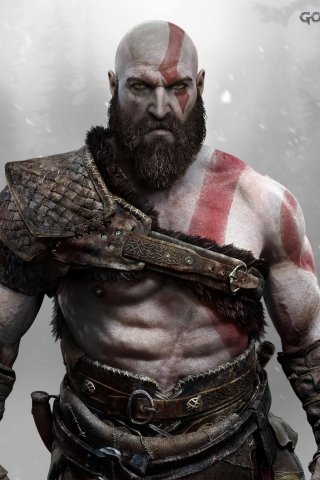- God of Thunder our late game carry is placed in the most protected spot (bottom left). Thunder Spirit has the best attack speed in your lineup. It will be your attack item carry for the game Hence you will want this piece well protected (eg middle).
- God is not just THE Master chess player. Far beyond that, God is the Master of the universe, and as such, He's the Creator of strategy itself. Far beyond 20-25 steps ahead of the devil, the LORD GOD can see trillions upon trillions of potential counter moves for any move the devil might ever think of.
- Play chess with the gods! Our highly collectible chess pieces conjure ancient tales of Greek mythology and the elite gods and goddesses atop legendary Mount Olympus. Zeus, their ruler, plays the chess king while Aphrodite, goddess of love, stands in as queen in this handcrafted set.
I am not a professional reader or editor, but I do have a book collection of over 3,000 titles and have collected books for 45 years and could not resist turning a few pages of Playing Chess With God, by Verne Albright. One way I look at a book to assess its value is to randomly search for sentences and I must admit I am easily turned off.
Caïssa is a fictional (anachronistic) Thraciandryad portrayed as the goddess of chess. She was first mentioned during the Renaissance by Italian poet Hieronymus Vida.
Vida's poem[edit]
Caïssa originated in a 658-line poem called Scacchia Ludus published in 1527 by Hieronymus Vida (Marco Girolamo Vida), which describes in Latin Virgilian hexameters a chess game between Apollo and Mercury in the presence of the other gods. In it, to avoid unclassical words such as rochus (chess rook) or alfinus (chess bishop), the rooks are described as towers (armored howdahs) on elephants' backs, and the bishops as archers:
Tum geminae velut extremis in cornibus arces
hinc atque hinc altis stant propugnacula muris,
quae dorso immanes gestant in bella Elephanti.
'Then twin, as if at the ends, citadels in the corners,
here and here stand ramparts with high walls,
which are carried into war on the back by immense elephants.'
A leaked unauthorized 742-line draft version was published in 1525. Its text is very different, and in it Caïssa is called Scacchia, the chess rook is a cyclops, and the chess bishop is a centaur archer.
This led to the modern name 'castle' for the chess rook, and thus the term 'castling', and the modern shape of the European rook chesspiece. Also for a time, some chess players in Europe called the rook 'elephant' and the bishop 'archer'. In German, Schütze ('archer') became a general word for a chess bishop until displaced by Läufer ('runner') in the 18th century.[1]
William Jones's poem[edit]
The young English orientalist William Jones re-used the idea of a chess poem in 1763, in his own poem Caïssa or The Game at Chess[2] written in English heroic couplets. In his poem, Caïssa initially repels the advances of the god of war, Mars. Spurned, Mars seeks the aid of the god Euphron (Jones's invention), brother of Venus, who creates the game of chess as a gift for Mars to win Caïssa's favor.
It is an unproven assumption that Jones's name 'Caïssa' (ka-is-sa) is an equivalent to Vida's name 'Scacchia' (ska-ki-a).
The English version of Philidor's 1777 Systematic introduction to the game and the analysis of chess[3] contained Jones's poem. In 1851 the poem was translated into French by Camille Théodore Frédéric Alliey.[4]
Modern use[edit]
Caïssa is referred to in chess commentary.
- Garry Kasparov uses this reference now and again, especially in his five-volume work My Great Predecessors. It is used as a substitute for being fortunate – 'Caïssa was with me' – especially in unclear situations, for example in sacrifices.[5]
- The 1994 book The March of Chess Ideas by Anthony Saidy extensively uses Caïssa as well.
- T. R. Dawson extensively used Caïssa, both as a character to provide literary narrative to accompany his problem collections,[6] or merely as a convenient anthropomorphism of chess.[7]
- The chess variant Caïssa Britannia, created by Fergus Duniho, was named after Caïssa.
- When writing about chess, Heinrich Fraenkel used 'Assiac' - which is 'Caïssa' spelled backwards - as a pseudonym.
- Antonio Radić, a Croatian YouTuber who runs the channel 'agadmator's Chess Channel', has created a chess based manga named 'Age of Caissa' which depicts a post apocalyptic world ruled by AI.
Caïssa as a concept has also been explored by some who seek the evidence of the sacred feminine in chess.[citation needed]
The first computer program that won the World Computer Chess Championship (in 1974) was named Kaissa.
The card game Android: Netrunner features a program type named Caïssa, which are modeled after chess pieces.
References[edit]
- ^Murray, H. J. R. (1913), A History of Chess, Benjamin Press (originally published by Oxford University Press), ISBN0-936317-01-9
- ^The Works of the English Poets, from Chaucer to Cowper; … edited … by Dr. Samuel Johnson … Vol. XVIII. London: … 1810.
- ^Philidor, F.A. (1777), Systematic introduction to the game and the analysis of chess (L'analyze des échecs) (Fifth ed.), London, pp. 12–20
- ^Poèmes sur le jeu des Échecs .. traduits en français par Frédéric Alliey, Magistrat. .. Paris. .. 1851.
- ^Kasparov, Garry (2003), Garry Kasparov on My Great Predecessors, Part 1 (First ed.), Everyman Chess, ISBN1-85744-330-6
- ^Dawson, Thomas Rayner (1947). Caissa's Fairy Tales. Croydon, England: Privately published by the author. pp. 31–17.
- ^Dawson, Thomas Rayner (1913-07-10). 'Caissa's Playthings'. Cheltenham Examiner. Retrieved 2013-09-21.
Bibliography Games where you can win money.
- Johnson, Samuel (1810), The works of English Poets from Chaucer to Cowper (Reprint ed.), London, p. 450
God Of Cheese Greek


Knight Chess Piece Symbolism
External links[edit]
Goddess Of Chess
- Text of Scacchia, Ludus, by Hieronymus Vida of Cremona (1559)
- Caïssa by William Jones 1763 edochess.ca/batgirl/
- Caissa's Web a selection of chess poems at members.caissa.com

